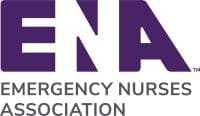Renal System Overview
Audience /Overview
CNAs in long-term care, sub-acute facilities, and hospital settings will learn detailed information on the renal system, reasons the renal system stops working, and current guidelines for caring for patients with renal issues. Kidney disease is extremely common in the elderly population, and even more common in the diabetic population. With the prevalence of diabetes increasing, CNAs will more frequently see patients with renal diseases and should be knowledgeable on proper care of these patients. Patients with severe renal issues need frequent CNA assistance, which is why teaching proper care of these patients is indicated. Knowing current guidelines will give CNAs the confidence to care for their patients, which results in better outcomes for patients with renal issues.
Course Curriculum
- Basic anatomy of the renal system
- Physiology/function of the kidneys and renal system
- Acute vs. Chronic kidney disease
- Prevalence of kidney disease in the United States
- Signs and symptoms of renal impairment
- Risk factors for kidney disease
- Diabetes and kidney disease
- The stages of chronic kidney disease
- Preventing kidney disease
- Understanding dialysis and why patients need it
- CNA roles for the patient on dialysis
- CNA roles and guidelines for caring for the patient with renal issues (catheter care guidelines)
- UTI Risk Factors
Learning Objectives
After successfully completing the course, students should be able to:
- Define the stages of chronic kidney disease
- Identify the anatomical parts of the renal system
- Discuss the purpose of the kidneys in the body
- Understand the risk factors associated with renal disease
- Discuss ways to decrease the chance for getting chronic kidney disease
- State ways that CNAs can support patients with kidney disease
- List the current guidelines for proper catheter care
- Summarize the link between chronic kidney disease and UTIs
- List ways that chronic kidney disease can affect a patient’s psychological state
Course Format and Teaching Method
- The course is led by an instructor in a classroom setting. Instructors will lecture content and lead discussion to include the cognitive learning portion of the class with case scenarios, activities, and worksheets. The instructor will guide the students through the case scenarios and the activities to encourage participation. To ensure cognitive learning was achieved, a quiz will be given at the end of the lecture and activities.
- Course duration: 4 hours
Course Completion Certificate
NAC CE Credits: 4.0
Textbook Requirement
- A lecture manual with slides and activity sheets will be handed out at the beginning of class to each student at no additional charge.

Course Summary
Read Amy R.‘s review of Project Heartbeat on Yelp
Class Times
CNAs in long-term care, sub-acute facilities, and hospital settings will learn detailed information on the renal system, reasons the renal system stops working, and current guidelines for caring for patients with renal issues.
Please choose a location:
Oakland / Bay Area
Upcoming Renal System Overview Courses:
Sacramento
Upcoming Renal System Overview Courses:
Prefer a convenient location option for your group of 8 or more?
Project Heartbeat makes every effort possible to provide classes available throughout the entire Bay Area.
In addition to classes conducted at one of our facilities, Project Heartbeat understands that it is much more convenient to send 1 instructor to your facility rather than sending all your students to ours. Therefore, any of our classes can be personalized to your needs and conducted at your home, workplace, school, hospital, or other healthcare facility.
Onsite classes can be scheduled 7 days a week during the morning, afternoon, early evening, or even during an extended work lunch break.
We will make every effort to tailor a class specific to your needs!





